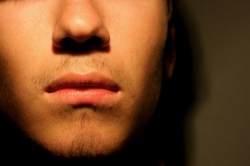Have you ever tried to hold your breath while the car you're riding in goes through a tunnel? Or have you ever held competitions with your friends while swimming to see who could hold his or her breath the longest? In either case, at some time you gave up on holding your breath and started breathing again. While it can be fun to challenge yourself to hold your breath for a long time, in the end you always have to give in and take deep breaths. Why? Well, without breathing your cells cannot work properly and you cannot live!
Your lungs play an important part in helping you breathe. They bring in the things that your body needs from the air you breathe, while also taking out of your body the things it does not need. Your body forces you to stop holding your breath and breathe again when it needs to bring in and get rid of these things. All of this is part of the respiratory system.
One of the most important reasons for breathing is to let oxygen into your body. Oxygen is a gas in the air that your cells need in order to make the energy you use to do anything in life. Oxygen makes up about 21% of the air on earth. This may not sound like a lot, but it is enough to meet all of our breathing needs. You let oxygen into your lungs by breathing in through both your mouth and nose. This is important because it means that you always have a way to breathe, no matter what else you may be doing. If you are eating food through your mouth, you can still breathe in through your nose. If you are sick with a stuffed-up nose, you can still breathe in through your mouth.

When my nose is stuffed I can breathe through my mouth. When my mouth is closed I can breathe through my nose.
Just like you get the gas that your body does need by breathing in, you release the gas your body does not need by breathing out. Carbon dioxide is a gas that your body breathes out and it's made whenever your cells get energy from food. It is created when energy is made in the bodies of people and animals. You do not need this gas, so your body gets rid of it. In fact, having too much carbon dioxide inside of you can be very bad. However, getting rid of it is pretty easy "" all you have to do is breathe it out through your mouth or nose.
Your body trades these gases just like a trade that you might make with your friends. Let's say that during lunch you trade your bag of chips for your friend's apple slices. In both your breathing and your lunch food you are getting rid of something that you do not want and getting back something that you do want. Exchange means to trade one thing for another. When we are breathing, we exchange the gas that we do not need (carbon dioxide) for the gas that we do need (oxygen).
Now how is all of this connected? Respiration is the exchange of carbon dioxide and oxygen. This is just a fancy word for "breathing." Your respiratory system just means all the parts in your body that help you to breathe. Breathing is so important that your body does it without you even having to think about it at all!

Coming through, oxygen on board.
Zol87, CC BY-SA 2.0 , via Wikimedia Commons
One way to think of this whole set of steps for breathing is to picture a train that picks up and drops off different packages. Oxygen is the first package, and it enters your body through your nose or mouth. Your lungs are the train station where these packages of oxygen are loaded on a train. That's your blood. Your blood drops the packages off where they are needed around your body. While moving all around your body, this train also picks up other packages -- carbon dioxide. It carries them back to the train station, or your lungs. At the train station they are unloaded, or pushed out of your body when you breathe out. It doesn't matter whether you breathe through your mouth or nose. Your lungs are still the same train station and will still do the same job.